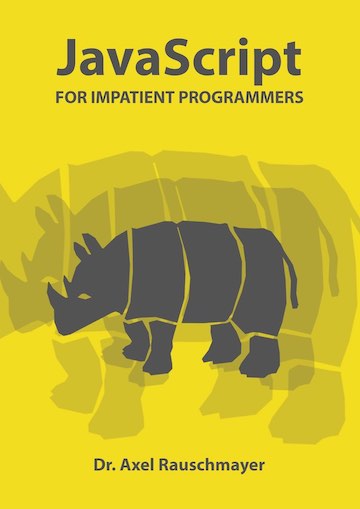HP will spin off PC division, stop making webOS hardware
Updates:
- 2011-08-27: Team sizes: webOS versus Android versus OS X
- 2011-08-20: HP lost its way.
The press release
Quoting the official HP press release [via MacRumors]:- HP confirms that it is in discussions with Autonomy [Corporation, see below] regarding a possible offer for the company.
- HP will consider a broad range of options [for its Personal Systems Group (PSG)] that may include, among others, a full or partial separation of PSG from HP through a spin-off or other transaction.
- In addition, HP reported that it plans to announce that it will discontinue operations for webOS devices, specifically the TouchPad and webOS phones. HP will continue to explore options to optimize the value of webOS software going forward.
Comments
- Focusing on enterprise services is a typical business decision that moves HP further away from its engineering roots (which seem like a distant memory now).
- HP really is a place where good companies go to die. With webOS, they have great technology on their hands, but apparently are not patient enough to stick with it until it is successful. Say what you will about Microsoft (another underdog in the mobile game), but they don’t give up easily (Danger being one exception to the rule). You need endurance in this game. Or, in other words, “it’s a marathon, not a sprint” [1].
- On the other hand, with Google having bought Motorola [2,3], Android is not as safe a bet as it used to be and the chances of success for a licensed mobile operating system are better than ever.
Press review
The following are quotes from the internet that provide additional insights. My comments are in italics.“HP discontinues TouchPad, webOS phones” by Marco Arment.
The discontinuation seems sudden. As if there was a strong motivator that had little to do with the TouchPad’s poor sales.“Why HP killed its webOS devices” by Thomas Ricker for This is my next...Such motivators may include a big offer to buy the large patent portfolio formerly owned by Palm and likely extended by HP, which probably has a lot of applications in smartphone and tablet software.
To put it simply, the TouchPad and webOS devices failed to meet HP’s financial targets and unit sell-through expectations. And HP failed to “position webOS as the clear number two platform for tablets.”“HP: ‘We are not walking away from webOS;’ exclusive details from inside” by Joshua Topolsky for This is my next...Like I said, no patience.
DeWitt said that there would be staff reductions, but told the team that the company needs people “that are serious about winning” and again reiterated HP’s commitment to developing webOS as a platform. Both DeWitt and Bradley were clear that the current business model of webOS wasn’t working primarily due to lackluster hardware, arguing that HP needed to stop “trying to force non-competitive products into the market.”“Does Apotheker need an apothecary? Why HP is exiting the PC business” by Anders Bylund for Ars Technica.Interesting: HP management calls it quits, but demands that their staff be “serious about winning.” What does that even mean? And if your products are not competitive – why not try and improve them? You know, take a shot at “engineering”.
[HP CEO] Apotheker is very much a software man. Coming in from decades of enterprise software experience at German powerhouse SAP, Leo was thrown into a world full of hardware at HP. From PCs and printers to UNIX servers—and even a finger in Intel's Itanium design—the Palo Alto giant must have looked alien to a man of Apotheker's pedigree.“HP tested webOS on an iPad. It ran over twice as fast” by Matt Brian for TNW Apple [via MacRumors].HP's board of directors knew this when they hired him. If the steering committee wasn't okay with a radical shift into software and services, they would have hired somebody else.
...
I wouldn't be surprised to see webOS finding new uses, too. It's software, after all, and Apotheker understands how to wring value out of that asset class.
... before the HP’s TouchPad tablet and Pre smartphones were even released, everyone within the webOS team “wanted them gone”.“HP: What Léo Apotheker’s Decisions Mean” by Jean-Louis Gassée for Monday Note. Summary: HP’s PC and webOS announcements were made much too early, with negative consequences for both divisions and with no plan in sight. Microsoft is a positive counter-example of how to back a mobile operating system.
...
When HP announced its acquisition of Palm, the computing giant had already built the TouchPad hardware that sits on the shelves today. Basically, the TouchPad was a two-year old piece of hardware that the webOS team equipped with their tablet-friendly platform.... HP also had plans to release a 7-inch version of the TouchPad, the TouchPad Go. This was already in production and before yesterday was expected to launch in the coming months. ... The TouchPad Go was seen as a better looking and nicer feeling device that had the potential to sell ...
So HP brought a product to market that they didn’t believe in. And then gave up before the hardware was ready that they did believe in. Wouldn’t it have been smarter to wait a few more months? This also would have given them more time to polish the tablet version of webOS. They could have still released the older TouchPad as a developer-only machine. Similar to what Google has done with Chrome OS [4].
“Facebook webOS; Playing to Win” by Dion Almaer. Quote:
I have been taking in the news and constant amazement as the “HP webOS” situation changes in front of my eyes. A month ago we had folks from HP saying that we are staying the course and great devices are coming soon, and now we have utter chaos. I don’t know what HP’s plan was, but man…. surely it wasn’t to be executed as badly as this.... if we saw webOS at Google I think that Android would have been even more than it is today. The interaction model is vastly superior. This doesn’t mean that the user experience is superior. I can’t say that is the case because webOS hasn’t performed well enough. It has been too slow and buggy, and it pains me to say that. webOS 2.0 was a case of second system syndrome to the extreme, and if we had instead had folks sitting in a darn profiler, we would have ended up at a much better spot.
An interesting thought experiment: What if Android was based on web technologies instead of Java? Then it would probably be a better fit for a company that is all about web technologies. As it stands, Android is a bit of an oddity at Google. Don’t forget that Google’s V8 bears a lot of responsibility for the growing popularity of JavaScript.
Almaer would like to see either Facebook or Amazon buy webOS. Both are companies that understand the web, don’t want to be boxed in by iOS and Android and usually play to win.




